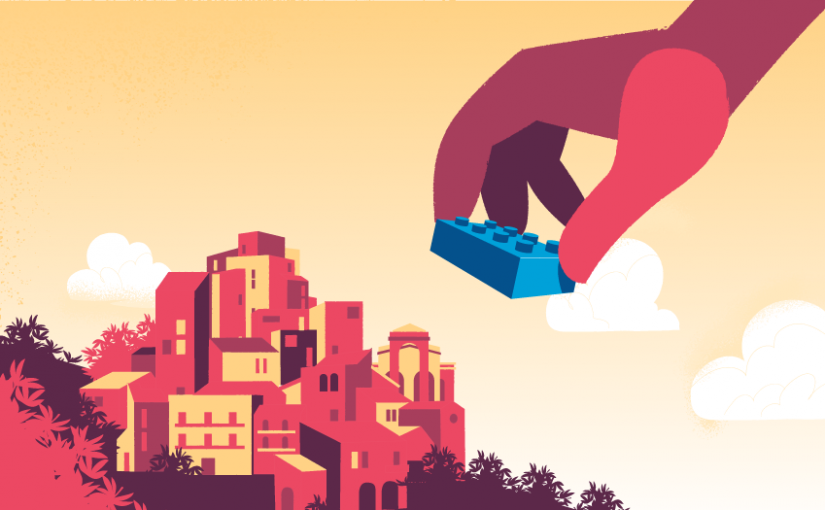It’s all too easy, at the moment, to imagine the future as one of catastrophe, even as a dystopia. The world is suffering through a tragedy, and many feel powerless because of it. It’s understandable—there isn’t a clear end to the COVID-19 crisis in sight yet, and experts can’t seem to agree on when that time will come either.
There is one thing they all agree on though: the fact that the current situation will eventually end, and that we have a brighter future ahead of us. For those that find this too abstract, there are several concrete reasons for this expectation. While the media mostly focuses on the bad news, there is also some good happening right now.
A United Effort
One positive thing to consider is the rapid responses many governments have shown. Within days or weeks, many provided relief payments to struggling families and employees, and countries like Austria, Germany, and the UK created financial incentives for companies not to lay off their employees even while they couldn’t work.
All over Europe and the rest of the world, local governments and small organizations banded together in order to help out the most vulnerable members of society—stores provided easy ways to disinfect carts, many towns offer free grocery deliveries for the elderly or sick, and some countries even removed regulation hurdles that made it easier for patients to get medication refills.
Even at a personal level, people are working together more closely. Social media is filled with reports of people helping out others, be it family, friends, or strangers in need.
A Surge in Self-Reliance
Another positive impact has been people realizing how they can take concrete steps to protect themselves and their families by better planning and preparing for the future. Beyond economic measures (which we’ll discuss in the next section), being stuck in lockdown has helped many people to realize that depending on the local shops to have everything you need can get precarious as soon as a crisis arises. While previous generations lived through traumatic events such as wars and depressions, it’s been a long while for most in the Western world, with the exception of the crash of 2008, that current generations have dealt with such situations.
As a result of the lockdowns and scarcity of various day-to-day items, people are exploring ways to be better prepared the next time a crisis unfolds, and therefore, provide stability for their families and communities to get through it. In turn, this has helped stimulate growth for a variety of businesses across multiple related industries, such as those involved with selling gardening products, tools and hardware, camping equipment, storage, and so on.
Economic Opportunities
Now that, in many countries, daily infections and death tolls are lowering, people are gearing up for the next part of this crisis—the economic fallout. It’s difficult to gauge just how severe it will be, but amidst economic shutdowns, many small businesses had little to no income to offset their costs for several months now.
At a glance, this may seem like the end of many businesses, but it may not be quite as bad as it seems. Along with closed businesses, demand across various sectors sank as well. Business-to-business product and service demands decreased, keeping a somewhat tentative balance.
Coming out of lockdowns, this is unlikely to change. People are still cautious, and the return to normal will be slow. This will likely prevent explosive rises in demands that would force smaller businesses out of the competition because they can’t keep up. This will keep prices steady and mitigate the impact on smaller companies and also consumers.
A rather big concern was the possibility of high inflation. It’s not unreasonable to fear the sort of hyperinflation Zimbabwe and Venezuela have experienced, yet these scenarios seem more and more unlikely as the crisis continues. In fact, trends seem to point the other way—towards deflation.
High unemployment rates will likely cause a drop in wages, and already products like oil and fuel have dropped considerably in price. Coupled with the cautious decisions that many consumers are making at the moment, there is every indication that we will face a period of exceptionally low inflation as things slowly revert to previous standards.
New Opportunities
It’s not just all about recovery though. There is also the potential for new growth, and new opportunities in many markets. The current crisis has shone a spotlight on the things that aren’t working, or don’t have long-term potential… and thus also on opportunities that businesses may not have been aware of before.
The limits and weaknesses of globalization have never been more obvious, which could actually end up being a positive for small local businesses, as their opportunities could increase in the longer term. Countries like the UK, Turkey, Russia, and others have imposed restrictions on exporting certain goods in order to secure the supply within their borders. If this trend continues, it could well mean at least a partial return to local production and manufacturing.
With this, it may be a good idea to keep an eye out for investments in local business development in particular during these times. Furthermore, with consumer spending likely to spike as lockdowns are eased worldwide, we suggest keeping a close watch on the latest P2P opportunities.
